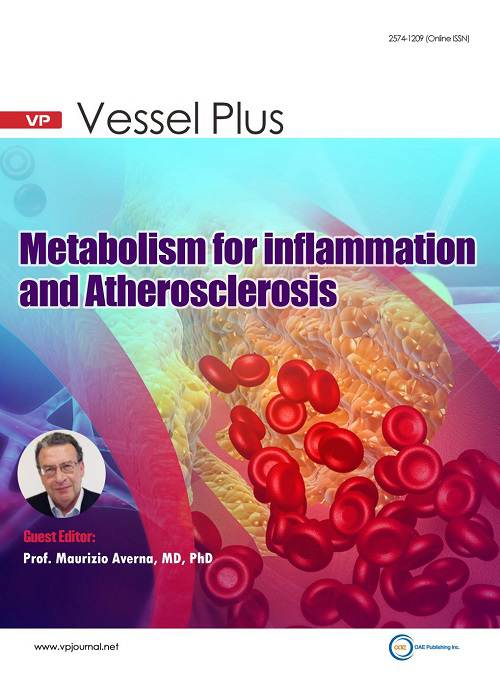
Topic: Metabolism for Inflammation and Atherosclerosis
Guest Editor(s)
Special Issue Introduction
Atherosclerosis is a chronic inflammatory disorder of the arterial wall. The progression of the atherosclerotic plaque to advanced lesion leads to erosion, rupture and thrombotic events. In the advanced lesions, several cell types are involved including macrophages, smooth muscle cells, T-cells and dendritic cells, indicating that besides the cholesterol accumulation, an active immune-inflammatory response is going on. The inflammasome activation represents the molecular check point that links cholesterol accumulation to inflammation in each phase of atherosclerosis, from plaque formation to acute coronary syndromes. Metabolic conditions have been shown to contribute to the progression of atherosclerosis also through inflammatory mechanisms. First, an alteration in lipid metabolism such as the Hypercholesterolemia. Local endothelial dysfunction leads to the retention in the arterial wall of LDLs that facilitate the recruitment of circulating monocytes and immune cells and activate the immune-inflammatory response in the atherosclerotic plaque once oxidized. The Metabolic Syndrome has been associated with an increased risk of atherosclerotic cardiovascular events; the increase production of inflammatory and oxidative stress mediators, i.e., adipokines and ROS, represents a link among Metabolic Syndrome, inflammation and atherogenesis. Diabetes is associated with an accelerated development of atherosclerosis that may be due to many contributors such as atherogenic LDL, hyperglycemia, oxidative stress, and increased inflammation. Altered Uric acid metabolism has been linked to an increased risk of atherosclerosis and cardiovascular events. Uric acid is a potent antioxidant but it also plays a role of oxidant. Many lines of evidences seem to suggest a role of uric acid in the endothelial activation and in the increased risk of coronary artery disease.
The scope of this Special Issue is to provide a comprehensive and updated view of the molecular pathways as well as the clinical correlations that underlie the interplay among some common and prevalent metabolic conditions, inflammation and atherosclerosis. It will focus on the general mechanisms of immune-inflammation in atherosclerosis and on the role of hypercholesterolemia, metabolic syndrome, diabetes and uric acid metabolism.
The scope of this Special Issue is to provide a comprehensive and updated view of the molecular pathways as well as the clinical correlations that underlie the interplay among some common and prevalent metabolic conditions, inflammation and atherosclerosis. It will focus on the general mechanisms of immune-inflammation in atherosclerosis and on the role of hypercholesterolemia, metabolic syndrome, diabetes and uric acid metabolism.
Keywords
Atherosclerosis, inflammation, metabolic disease, hypercholesterolemia, diabetes, metabolic syndrome, uric acid
Submission Deadline
15 Dec 2020
Submission Information
For Author Instructions, please refer to https://www.oaepublish.com/vp/author_instructions
For Online Submission, please login at https://oaemesas.com/login?JournalId=vp&SpecialIssueId=488
Submission Deadline: 15 Dec 2020
Contacts: Alisa Wang, Assistant Editor, alisa@vpjournal.net




